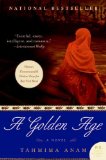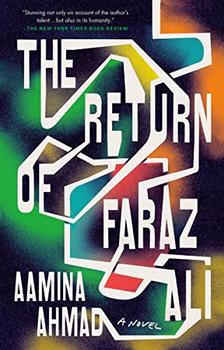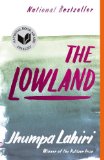Summary | Excerpt | Reading Guide | Reviews | Beyond the book | Read-Alikes | Genres & Themes | Author Bio

The eyes of the world have recently been turned toward the country of
Pakistan. Many have watched with sadness and concern as the turmoil within
Pakistan's government and among its citizens grows. Worse, Pakistani citizens
are dying – leaders, angry militants and innocent bystanders alike.
First-time novelist Tahmima Anam has written a story of another tumultuous
season in Pakistan's recent history, the transition of East Pakistan to
independent Bangladesh. Her novel explores how far a person or group of people
will go for someone or something that they fiercely love, while offering a
timely glimpse of a not so distant conflict in Pakistan.
A Golden Age describes the
Bangladesh War of Independence from the perspective of one woman, Rehana Haque.
Rehana is a widow, a Calcutta-born resident of Dhaka (East Pakistan/Bangladesh)
and most of all, a mother. Because the events of the story are viewed through
Rehana's eyes, the love of a mother for her children supersedes all of the other
loves and loyalties explored in the novel. Rehana will stop at almost nothing to
provide for and protect her children, especially her son. Rehana's two children,
Sohail and Maya, in turn, echo their mother's unwavering devotion in their own
choices. Sohail's love for a neighbor girl cannot be broken, despite the
girl's marriage and Sohail's involvement in the horrors of war. Maya's
passion for a free Bangladesh consumes her.
The mixture of languages and cultures within the pages of A Golden Age
make for a challenging but rewarding read. The chapters are sprinkled with
Bengali and Urdu words that slow the reader struggling to understand their
meaning. Footnotes or a glossary would have been helpful. Despite these slow
points, Anam deftly shows her readers what the soon-to-be-newborn country of
Bangladesh was like in 1971. Her descriptions of supporting and anecdotal
characters combine with carefully recorded details of food preparation and other
daily activities to allow the reader to envision a culture vastly different from
his or her own. The story's blend of ordinary and emergency emphasizes the
silent integration of routine and patterns of daily living into the culture of a
nation.
The novel's limited point of view, provided by Rehana's character, also
allows Anam to portray political unrest and violence from a domestic, almost
comprehensible perspective. Riots, conflicts, wars – the struggle for survival
and the effects of that struggle on individual families are often difficult to
grasp for those who have not experienced the events. Anam leads her readers to a
more thorough understanding of Bangladesh's struggle for independence through
the reactions and actions of one woman. Rehana's world revolves around providing
food, shelter, spiritual guidance and happiness to her children. Rituals and
tasks designed to accomplish these goals become much more difficult following
the occupation of the Pakistan Army beginning on March 25, 1971. Rehana's
efforts to maintain some control over everyday life during the conflict draws
the reader into her reality and perhaps a bit closer to the reality of those who
actually lived in East Pakistan during that time.
A Golden Age is written with absorbing specificity: Anam is confident in
the purpose and placement of layered detail. Yet, the book also shines in its
exploration of universal themes and human emotion. Family, loss, loneliness,
sacrifice, religion and response to war – many of the grand subjects of fiction
– are found in this tale of a mother who refuses to surrender her children or,
in the end, her adopted country.
First Impressions
15 BookBrowse members reviewed this book through First Impressions. Read their comments here.
![]() This review was originally published in The BookBrowse Review in January 2008, and has been updated for the
January 2009 edition.
Click here to go to this issue.
This review was originally published in The BookBrowse Review in January 2008, and has been updated for the
January 2009 edition.
Click here to go to this issue.

If you liked A Golden Age, try these:

by Aamina Ahmad
Published 2023
Sent back to his birthplace - Lahore's notorious red-light district - to hush up the murder of a girl, a man finds himself in an unexpected reckoning with his past.

by Jhumpa Lahiri
Published 2014
Epic in its canvas and intimate in its portrayal of lives undone and forged anew, The Lowland is a deeply felt novel of family ties that entangle and fray in ways unforeseen and unrevealed, of ties that ineluctably define who we are
The moment we persuade a child, any child, to cross that threshold into a library, we've changed their lives ...
Click Here to find out who said this, as well as discovering other famous literary quotes!
Your guide toexceptional books
BookBrowse seeks out and recommends the best in contemporary fiction and nonfiction—books that not only engage and entertain but also deepen our understanding of ourselves and the world around us.